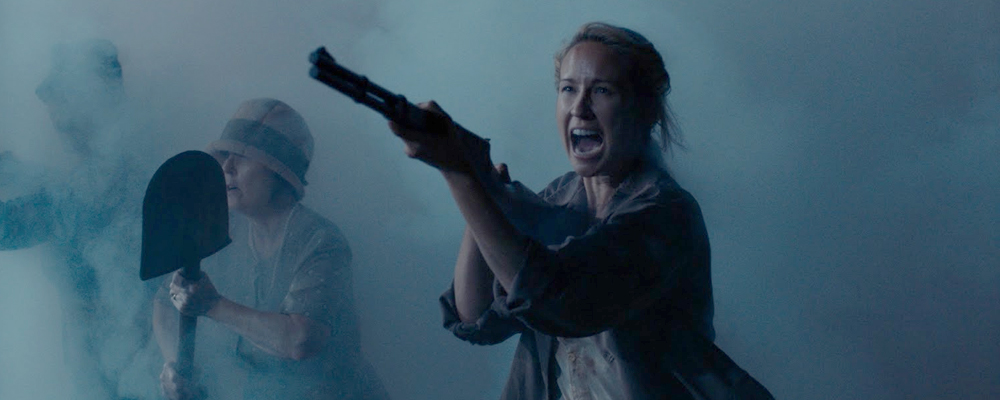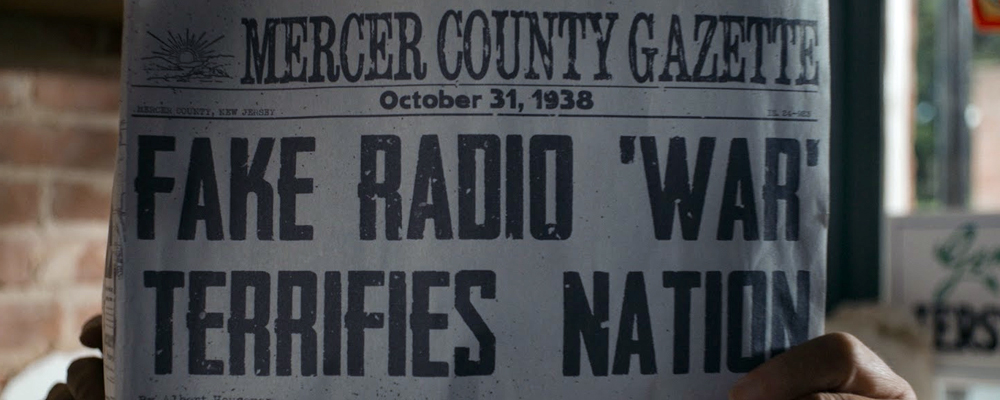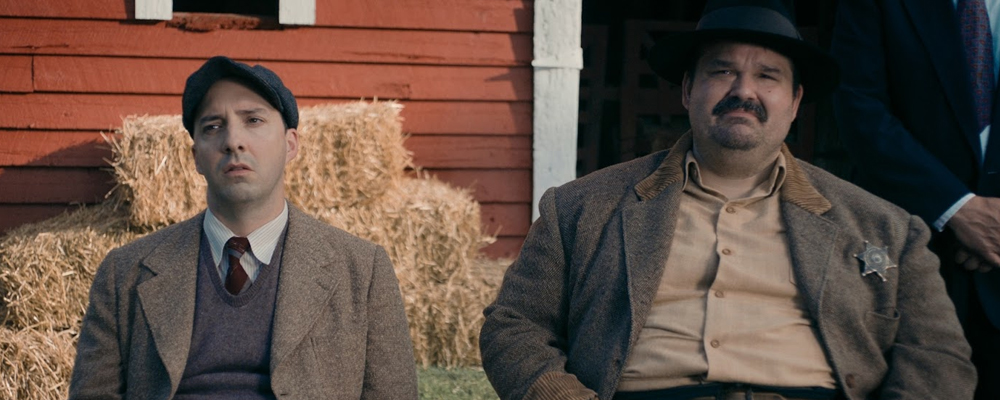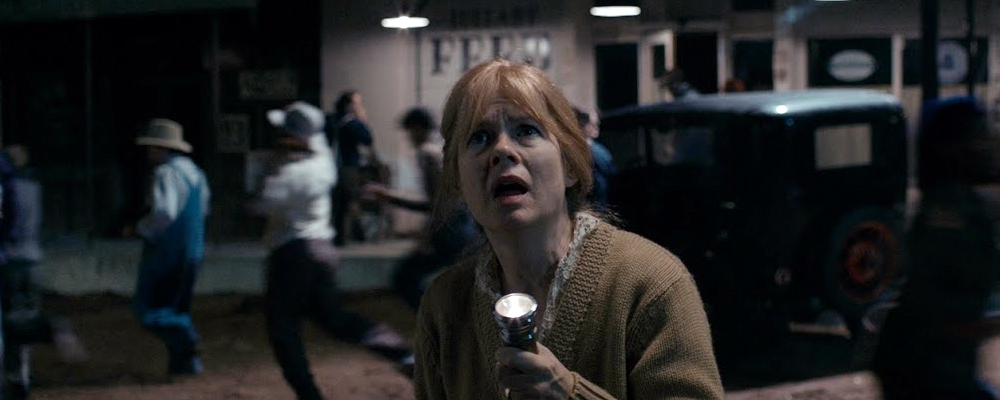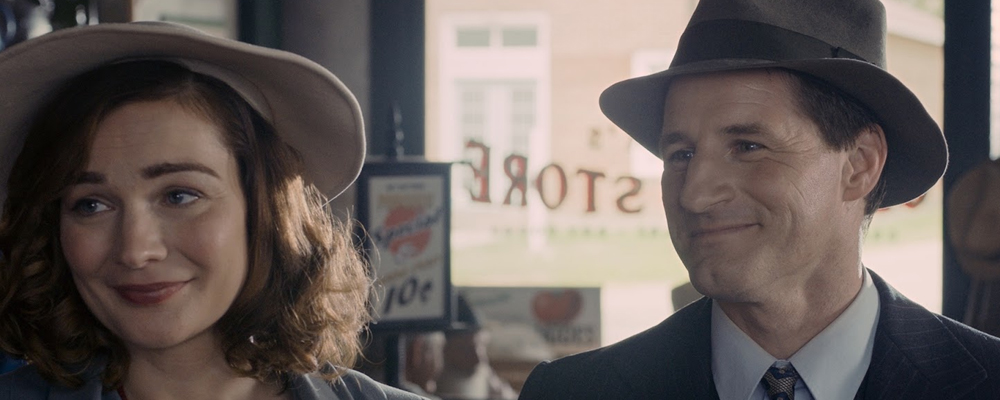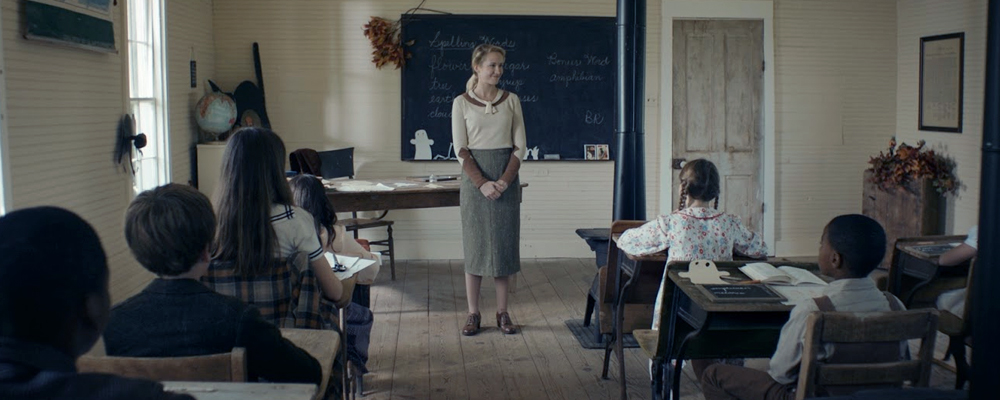‘Brave New Jersey’ Plays It Too Safe to Win the War of the Worlds
Tony Sokol
Mercury Theatre on the Air’s 1938 radio broadcast of “War of the Worlds” is legendary as one of the great hoaxes of the 20th Century. Adapted from H.G. Wells’ classic science fiction novel, the play was rendered so realistically, people across the country, too scared to change the station, took up arms against a mass of marauding Martians. People were injured. Traffic was jammed on remote country roads. Even as the station broke into the performance to remind listeners they were hearing fiction, the panic grew. The next day, Orson Welles, now known as the legendary director who changed cinema with “Citizen Kane,” held a press conference to apologize. But Welles wasn’t sorry. He was downright amused. The film reel that captured the twenty-something-year-old actor’s deeply concerned personal mea culpa also captured his glee. The very last newsreel frame catches a gleam in his eye.
Sadly, “Brave New Jersey” does not gleam. Set in a small town in New Jersey, it never reaches the frenetic heights of paranoia promised by the setup. The film opens on the idyllic setting of the Garden State in bloom. The town of Lullaby is kept awake by the usual insular neighborhood problems. Currently housing the fourth tallest water tower in the county, it’s been chosen as the home of the Rotolacter, a machine that milks several cows at a time and is on the precipice of bigger things. In spite of some minor “Peyton Place” drama, it seems like the sky’s the limit, until someone on the radio says the sky is falling.
Havoc reigns within 20 minutes. “Change only comes when you take bold leaps forward,” says Rotolactor entrepreneur Paul (Sam Jaeger), who immediately takes action. He jumps in the car, abandoning his wife Lorraine (Heather Burns), daughter Ann (Grace Kaufman) and Polish adopted son Ziggy (Harp Sandman) — a refugee from Hitler’s fascism, which is stomping over Europe.
The townsfolk come out in droves and are reluctantly led by mayor, town clerk and sign painter Clark Hill (Tony Hale), who tells them not to panic. That is until an old World War I vet enters the town hall like Quint in “Jaws,” without the fingernails on the blackboard. Captain Collins (Raymond J. Barry) looks like he got pretty old between wars. Sure he can still fit into his old uniform, but really, this is only a generation ago, twenty years. This guy lived more lifetimes than Barry, the actor who’s playing him, and Barry’s lived quite a life. He’s been on screen in every genre, and most time periods, even if they weren’t always considered time period films when he made them.
The sheriff (Mel Rodriguez) is more scared than the people he’s sworn to protect and immediately lets Captain Collins take charge. The former dough boy calculates that if the Martians landed at 8:50 p.m., they’d hit town by midnight, and prepares his farmhand troops for Armageddon.
Meanwhile, Reverend Ray is clearing his church of parishioners because he has no answers except maybe God is a mean son of a bitch. Dan Bakkedahl, who plays the inventively foul-mouthed Senator Furlong on “Veep,” gives the best performance in the film. He transforms from a man who has lost his calling to the bravest soul in town.
Grammar school teacher Peg (Anna Camp), who joins the fight as much to save the town as to avoid her boring fiancé Chardy (Matt Oberg), provides the only real element of dangerous suspense in the film. She mistakes children playing in the dark for Martians and almost shoots them.
As the mayor, Hale is on full passive-aggressive mode. He’s got a diary where he keeps his to-do list, random thoughts and lyrics for songs he’ll never sing in public. He is secretly in love with Lorraine, and spends almost every moment on camera swallowing his emotions, which is pretty much what he does on “Veep.” Mayor Clark Hill prides himself on not missing anything that needs doing in town, but he doesn’t notice the love of his life, Lorraine, coming down a road that stretches for miles with nothing covering it up — not even a single tree.
There is no real attention to period detail. The houses have modern siding and windows. The landscape could be from any time because grass and trees will always be grass and trees. “Brave New Jersey” feels like a television movie. It’s not just that the actors are recognizable from dozens of shows, but the arc, emotional depth and resolutions all play out so happily hopeful. Every minor problem gets sorted out. Of course, a married woman would never think of leaving her husband in the late 30s, but it has to happen because no one can be scathed in the tepid drowsiness of Lullaby, N.J.
While it appears that the panic at the center of the film is only possible because of the lack of communications at the time, this happens all the time now with all the new technology. Rumors fly across the internet at the speed of light now as tech does so much thinking for us. Today everybody can take a chance at being Orson Welles.
“Brave New Jersey” opens in theaters Aug. 4.

